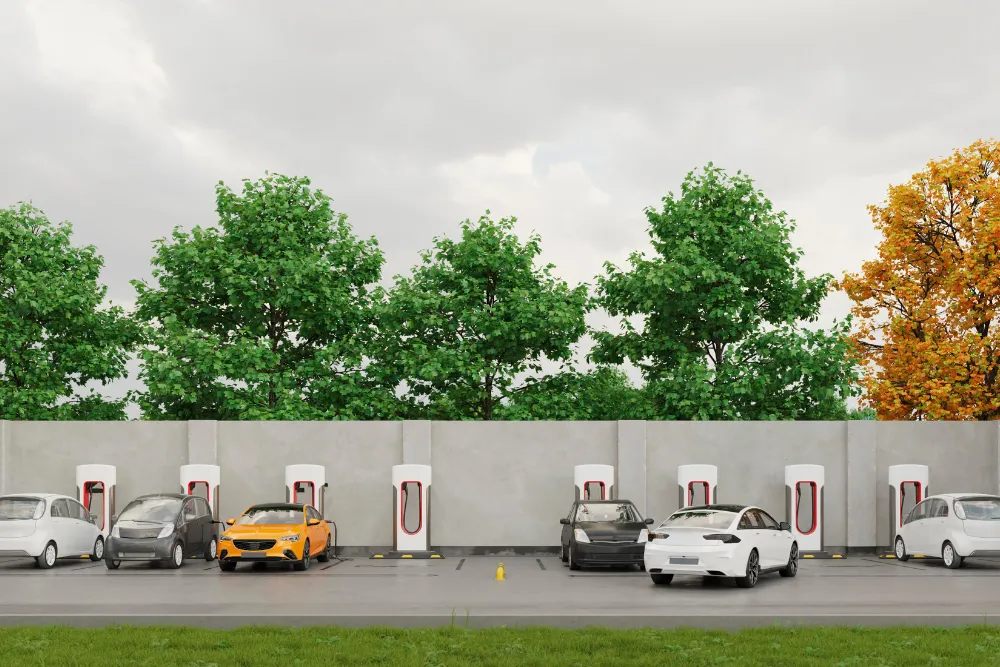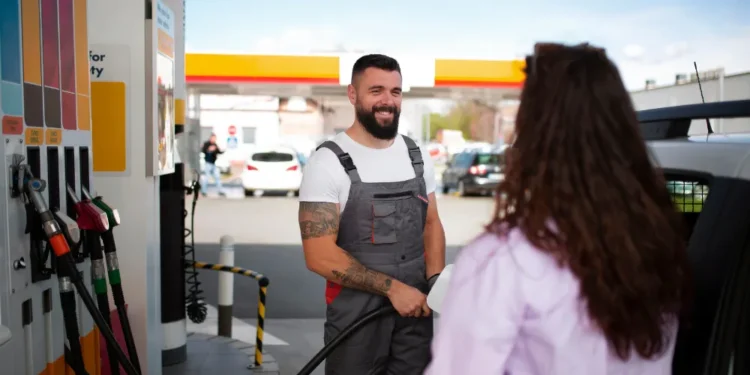In recent years, Retailers Entering Fuel Business have caused a stir in many fields, changing how fuel is distributed and how customers use energy. Some of the most famous retail brands in the world are now interested in what used to be an industry just for oil and energy companies. But how exactly are retailers affecting the success of the fuel industry? What are the benefits of this change for people, businesses, and the environment?
This article about retailers getting into the Retailers Entering Fuel Business goes into great detail about the reasons behind the trend, the problems they face, and the creative ways they are doing well in this competitive market.
The Rise of Retailers in the Fuel Sector
It’s not a new idea for Retailers Entering Fuel Business, but it has become very popular in the last ten years. Businesses that used to only sell electronics, groceries, or things for the home are now selling gas. What is making them act this way? In short, the fuel market is a good way to make money because it has a lot of potential for profit, and demand is going up.
The fuel industry is no longer just about gas stations; now, they are focused on giving customers a smooth, integrated experience that goes beyond just filling up their cars. Retailers see this as a chance to expand their portfolios and find new ways to make money.
One example is 7-Eleven, which is one of the best-known convenience store chains. They have taken advantage of this trend by building gas stations next to their stores. This plan has helped them get more people in the door, offer more services to customers, and make more money. In a similar way, big stores like Walmart and Costco have started selling gas at a discount to get loyal customers.
Why are stores getting Retailers Entering Fuel Business?
To understand why Retailers Entering Fuel Business is a good idea, you need to look at a number of things, such as the economy, how people shop, and their long-term plans.
1. More people want things to be easy for them
Retailers Entering Fuel Business are in a good position to meet the growing need for convenience among customers. Customers these days want more than just gas. They want it with other services like car washes, quick food, or even a loyalty program. Retailers are already used to meeting these kinds of needs, so these services are perfectly positioned to be offered by them. This makes the filling-up process more convenient and appealing.
Costco is a great example of this because it has been steadily adding gas stations all over the US. Members go to these places not just for the cheap gas, but also for the other perks that come with shopping there.

2. Chance to make money and branch out
Selling fuel is a big way to make money. Retailers who get Retailers Entering Fuel Business don’t have to rely on just one source of income as much. Fuel retailing lets businesses get new customers and make more money, even though the profit margins on fuel are lower than those of other products.
For example, Kroger is a supermarket chain that already has a lot of customers. They sell gas to get people to come in and buy groceries who might not have otherwise gone there. To get even more sales, they also tell their customers to trade in their loyalty points for fuel savings.
3. Eco-friendly options and long-term viability
As environmental concerns grow, many new fuel retailers are looking for ways to help the growth of clean energy. Offering green fuel options, like biofuels or electric vehicle (EV) charging stations, is a big part of many retailers’ plans.
For example, Shell has been trying to work with stores like Carrefour to give customers more options for alternative fuels. The trend toward eco-friendly fuel options gives customers more long-lasting choices and also helps new retailers in the fuel industry do well.
Problems Retailers Have When They Try to Get into the Fuel Business
Retailers who want to get Retailers Entering Fuel Business must carefully plan and carry out their plans because they will face a lot of problems. Let’s look at some of these problems:
1. High costs of doing business
Opening a gas station is not easy. It is important to spend a lot of money on infrastructure, like safety measures, storage tanks, and fuel pumps. Setting up these kinds of places can be very expensive, so retailers who want to sell fuel need to be ready for both the initial costs and the ongoing costs.
In addition, making sure that people follow safety and environmental rules is even more difficult and expensive. Retailers need to keep up with federal and state laws and make sure they follow all of them to avoid costly fines or having to close.
2. Managing Fuel Supply Chains
The supply chains for fuel are very unstable and are affected by things like the environment, the economy, and politics. To get Retailers Entering Fuel Business, retailers must deal with these problems by building strong relationships with suppliers and making sure they always have enough fuel to meet customer demand. Changes in fuel prices can also affect margins, which makes it harder for businesses to offer prices that are competitive.
How Stores Are Getting Around These Problems
Even though there are these problems, new fuel retailers are coming up with creative ways to get around them and set themselves up for long-term success. The following strategies are being used:
1. Using Technology
Retailers who are starting to sell fuel are also doing well because they are using new technologies. By using fuel management systems, retailers can predict demand, keep an eye on fuel levels, and change prices on the fly to stay competitive. Mobile apps make it easier for customers to find gas stations, see prices in real time, and even pay for gas.
These digital solutions make businesses more profitable, happier customers, and lower costs of doing business.

2. Working with fuel suppliers
Instead of getting their own fuel, many stores choose to work with well-known fuel companies. This lets them use the supplier’s knowledge of managing risks, making sure quality, and getting fuel where it needs to go.
For instance, Walmart and other big-box stores work with Murphy USA to provide fuel services. This strategy lets the supplier handle the complicated parts of the fuel supply chain while the retailer focuses on the customer experience.
3. Adding programs to reward loyalty
Loyalty programs are a great way for retailers who sell fuel to keep their customers. Retailers can get customers to come back by offering discounts on gas, reward points, or special benefits for members.
For example, Kroger’s loyalty program gives people points that they can use to save money at Kroger Fuel Centers. This gets people to come back to Kroger, which boosts sales of gas and groceries.
The Chances of Retailers Entering Fuel Business Industry
Retailers who get into the Retailers Entering Fuel Business will have an even bigger impact on the industry in the future. Because more people want eco-friendly options, more electric cars are on the road, and people still want things to be easy, the future of fuel retailing will be very different from what it is now.
1. More EV charging stations
As electric vehicles (EVs) become more popular, the need for charging stations is growing quickly. Retailers who are getting into the Retailers Entering Fuel Business are already getting ready for this change by putting in EV charging stations at many of their stores. Retailers are becoming leaders in the changing energy landscape by offering both traditional fuels and electric charging options.

2. Smart Filling Stations
Another thing that will happen in the future is the building of smarter gas stations. Automation, artificial intelligence, and the Internet of Things (IoT) will make fueling stations more customer-friendly and efficient. These new ideas will help retailers who are getting into the Retailers Entering Fuel Business be even more successful by making customers happier and making their businesses run more smoothly.
FAQs
What benefits do consumers get from retailers entering the fuel business?
Consumers enjoy increased convenience, loyalty rewards, discounts, and the ability to bundle fuel with other services like food, car washes, and shopping discounts.
How do retailers manage fuel pricing and supply?
Retailers typically partner with established fuel suppliers, using advanced technology to monitor supply levels, adjust pricing dynamically, and ensure efficient fuel delivery to their stations.
What challenges do retailers face when entering the fuel business?
The primary challenges include high operational costs, managing fuel supply chains, complying with environmental regulations, and competing with established players in the fuel industry.
What does the future look like for retailers entering the fuel business?
The future will likely see an increase in electric vehicle (EV) charging stations, smart fueling technologies, and sustainable energy options, as retailers continue to adapt to evolving consumer demands and environmental concerns.
To sum up
In conclusion, the trend of retailers getting into the Retailers Entering Fuel Business is changing how we think about the fuel industry. Retailers are using new technologies and being more environmentally friendly. They are also finding new ways to make money and taking advantage of customers’ desire for convenience. They are solving problems like managing fuel supply chains and high operating costs by thinking outside the box and making smart partnerships.
As we move toward a future that values sustainability and green energy more, Retailers Entering Fuel Business will continue to grow. This will give customers more choices and solidify their position as major players in the energy market.
This change isn’t just about selling fuel; it’s about changing how we power the world in the future. Retailers are making a difference in the fuel industry and helping to make the energy sector more lively, useful, and focused on customers.




















